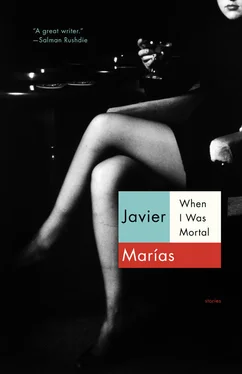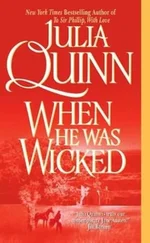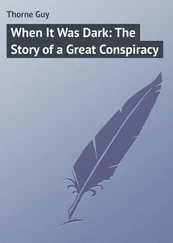Javier Marias - When I Was Mortal
Здесь есть возможность читать онлайн «Javier Marias - When I Was Mortal» весь текст электронной книги совершенно бесплатно (целиком полную версию без сокращений). В некоторых случаях можно слушать аудио, скачать через торрент в формате fb2 и присутствует краткое содержание. Год выпуска: 2012, Издательство: Vintage Espanol, Жанр: Современная проза, на английском языке. Описание произведения, (предисловие) а так же отзывы посетителей доступны на портале библиотеки ЛибКат.
- Название:When I Was Mortal
- Автор:
- Издательство:Vintage Espanol
- Жанр:
- Год:2012
- ISBN:нет данных
- Рейтинг книги:3 / 5. Голосов: 1
-
Избранное:Добавить в избранное
- Отзывы:
-
Ваша оценка:
- 60
- 1
- 2
- 3
- 4
- 5
When I Was Mortal: краткое содержание, описание и аннотация
Предлагаем к чтению аннотацию, описание, краткое содержание или предисловие (зависит от того, что написал сам автор книги «When I Was Mortal»). Если вы не нашли необходимую информацию о книге — напишите в комментариях, мы постараемся отыскать её.
. Plots turn on curious exigencies — a woman about to star in her first porn film; a night doctor who adds new meaning to "specialist"; a ghost whose neglect is greatly resented. "In the space of ten or twenty pages," as the
remarked, "Marías contrives to write a novel." "The short story fits Marías like a glove," as
noted, and these stories have been acclaimed as "dazzling" (
); "formidably intelligent" (
); and "startling" (
).
When I Was Mortal — читать онлайн бесплатно полную книгу (весь текст) целиком
Ниже представлен текст книги, разбитый по страницам. Система сохранения места последней прочитанной страницы, позволяет с удобством читать онлайн бесплатно книгу «When I Was Mortal», без необходимости каждый раз заново искать на чём Вы остановились. Поставьте закладку, и сможете в любой момент перейти на страницу, на которой закончили чтение.
Интервал:
Закладка:
“I’m telling you that there’s no way my friend would have picked up a tart.” The police are always intimidating, we end up talking to them the way they talk to us in order to ingratiate ourselves, and they talk like members of the underworld.
“Do you want to make work for me? Do you want me to have to go into those gay dives where men slow-dance together, and get my bum felt up, when the woman involved is nothing but a whore? Come off it. I’m not going to lose time or sleep over that. If your friend really did only fancy men, then you tell me what happened. And even if he did fancy men, on the night in question he obviously decided to get himself a whore, there can’t be much doubt about that, sheer chance, most unfortunate. I couldn’t give a damn what he did on every other night of his life, he could have been screwing his own grandfather for all I care.” Now it was my turn to look at him reproachfully, but not in the least sarcastically. He might have to deal with things like that every day, but I didn’t, and it was my best friend he was talking about. He was a tall, rather burly man with receding hair and somnolent eyes which, from time to time, seemed to wake up as if in the middle of a bad dream, flashing into sudden life before returning to their apparent sleepy state. He understood and added in a more patient, conciliatory tone: “Go on, then, you tell me what you think happened, give me your version of events.”
“I don’t know,” I said, defeated. “But, as I said, it looks like a set-up to me. You should check it out, it’s your job.”
Inspector Gómez Alday duly questioned the unscrupulous publisher with whom Dorta had had a drink in Chicote, he had turned up there with his wife, the three of them left at about two in the morning and went their separate ways. The waiters, who knew Dorta by sight and by name, confirmed the time. They bumped into another friend of mine, though only an acquaintance of Dorta’s, who goes by the name of Ruibérriz de Torres, but he had only stopped to talk with them for five minutes at most, until the two women he was waiting for arrived. He saw them leave at about two o’clock as well, by the revolving doors, he waved to them, he said the publisher was a dimwit but that the wife was very nice, Dorta had hardly said a word, which was odd. The couple caught a taxi in Gran Vía and went back to their hotel, they admitted feeling alarmed when Dorta said that he would walk, he told them he was going on to somewhere else nearby, and they watched as he headed off up the street towards the Telefónica or Callao, along streets rife with a fauna that terrified them, being from Barcelona, they wouldn’t have walked half a block. There wasn’t a breath of wind.
At the hotel, just a routine enquiry, they confirmed the arrival time of the publisher and his wife, around a quarter past two: a bit ridiculous really, the publisher may have been unscrupulous, but he would never have gone that far. Dorta was killed between five and six, as was his last, unlikely pick-up. Independently, I asked the few friends of Dorta whom I knew slightly, friends he went partying with and friends from gay bars, none of them had met up with him that night in any of his usual hang-outs, “le tour en rose” as he used to call it. They in turn asked waiters who worked in the various bars, no one had seen him, and it did seem odd that he hadn’t been to any of those places that night. Perhaps it had been a special night in all respects. Perhaps he had unexpectedly got entangled with some different people who hung out in different places. Perhaps they had kidnapped him and forced him to go with his kidnappers to his apartment. But they hadn’t taken anything, although someone had made off with the woman’s clothes, and she perhaps was one of the gang. The spear-thrower. I didn’t know what to think and so I thought absurd things. Perhaps Gómez Alday was right, perhaps he had decided to pick up an inexperienced, desperate whore, an immigrant in need of money, with a husband who wouldn’t approve and would be suspicious. A question of bad luck, very bad luck.
The inspector showed me the photos which I merely glanced at. Apart from those showing the whole scene, there were a couple of close-ups of each corpse, what in the cinema is known as a close-medium shot. The woman’s breasts were definitively soft, shapely and provocative, but nonetheless soft, sight and touch become fused in the end, we men sometimes look at something as if we were touching it, and this can sometimes cause offence. Despite the screwed-up eyes and the look of pain you could see that she was pretty, although you can never be sure with a naked woman, you have to see her dressed as well, beaches are of little use in that respect. Her nostrils were flared, she had a small round chin and a long neck. I glanced only quickly at the six or seven photos, but I nevertheless asked Gómez Alday if I could have a copy of the close-up of the woman; he gave me a surprised, distrustful look, as if he had uncovered some abnormality in me.
“Why do you want it?”
“I don’t know,” I said, lost. And I really didn’t, it wasn’t that I wanted to study it any further just then, a blood-stained body, a wound, the thick eyelashes, the pained expression, the soft, dead breasts, it was hardly a pleasant sight. But I thought I would like to have it perhaps in order to look at it later, in a few years’ time, after all, apart from the murderer, she was the last person to have seen Dorta alive. And she had seen him at very close quarters. “It interests me.” It was a feeble, not to say, grotesque argument.
Gómez Alday gave me one of his scorching looks, it didn’t last long, his eyes immediately resumed their usual sleepy appearance. I thought he must be thinking that I was a man with macabre tastes, sick in the head, but perhaps he understood both my request and the desire, we did, after all, share the same kind of pride. He got up and said:
“This is confidential material, it would be completely against the rules for me to let you have a copy.” And as he was saying this, he placed the photo in the photocopier in his office. “But you might well have made a photocopy here in my absence, without my knowing, when I left the room for a moment.” And he held out the sheet of paper with the blurred, imperfect reproduction, but a reproduction nonetheless. It would only last a few years, photocopies always fade, you forget how pale they become.
Now two of those years have passed, and only in the months immediately after Dorta’s death did I continue thinking about that night, my sense of horror lasted rather longer than the delight and malice of the impatient press and forgetful television, there’s not much you can do when there’s no help, no new leads, and the media don’t even serve as a reminder. It wasn’t that I needed it personally, very few things fade in me: there isn’t a day when I don’t remember my childhood friend, there isn’t a day when, at some moment, for some reason, I don’t stop to think about him, you don’t cease depending on people for the accidental fact that you can’t see them any more. Sometimes I think that the fact is not only accidental, but insignificant, habit and the accumulated past are enough for the sense of their presence to prevail and thus never disappear, how could you not miss all of that. But it does eventually fade if you don’t get to the bottom of things, worse, it can colour what went before. You know about the ending, but it’s no longer in the foreground. It wasn’t like that in the first months, when nightmares overwhelm sleep and the days all begin with the same insistent image, which seems like something imagined and nevertheless belongs to what actually happened, you realize it as you’re cleaning your teeth, while you’re shaving: “God, I’m an idiot, it really did happen.” I went over and over the conversation at our last supper together, and after a period spent endowing everything with significance, the razor edge of repetition made me see that nothing was significant. Dorta liked pretending to be an eccentric, but he did not believe in magic of any kind nor in any beyond-the-grave experiences, not even in chance, no more than I do, and I hardly believe in anything. I soon concluded, if indeed I had ever doubted it, that the story of the auction in London was purely anecdotal, the sort of thing that he liked to invent or do simply in order to tell people about it afterwards, me or others, the ignorant young men he idolized or his society ladies, knowing that they would be amused. The fact that he had bid for a magic ring belonging to that crazy demonologist Crowley proved it: it was so much more colourful to recount his struggle for that particular object than for an autographed letter belonging to Wilde or Dickens or Conan Doyle. A zebra. And yet he didn’t succeed in buying it, it would have been even more absurd if the joke had cost him an unexpectedly large sum of money. Perhaps the Germanic gentleman in the cowboy boots never even existed, pure imagination. And even if he had made off with the emerald: there was no question of dreaming up persecutions or sects, or Tutankhamen-type revenges or Fu Manchu-type plots, everything has its limits, even the inexplicable.
Читать дальшеИнтервал:
Закладка:
Похожие книги на «When I Was Mortal»
Представляем Вашему вниманию похожие книги на «When I Was Mortal» списком для выбора. Мы отобрали схожую по названию и смыслу литературу в надежде предоставить читателям больше вариантов отыскать новые, интересные, ещё непрочитанные произведения.
Обсуждение, отзывы о книге «When I Was Mortal» и просто собственные мнения читателей. Оставьте ваши комментарии, напишите, что Вы думаете о произведении, его смысле или главных героях. Укажите что конкретно понравилось, а что нет, и почему Вы так считаете.












